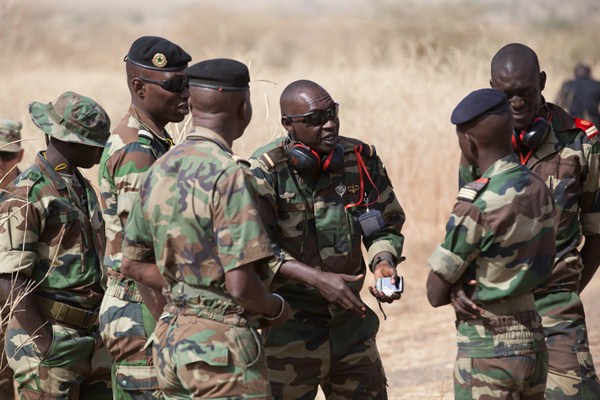On Monday, the United States and Senegal signed a deal to facilitate U.S. troop access to the West African country, in the latest example of the American military’s expanding presence in Africa. The deal authorizes the creation of infrastructure that enables quick deployment for U.S. forces; once the construction of new facilities is completed, American troops won’t have to start from scratch in the event of a crisis or attack. The agreement comes in the context of West Africa’s increasingly precarious security, with rising threats from militant groups such as al-Qaida in the Islamic Maghreb (AQIM), Boko Haram and the self-proclaimed Islamic State.
Washington’s interest in expanding U.S. military presence in and security cooperation with African countries isn’t new, and has grown substantially since 9/11. In 2008, United States Africa Command, or AFRICOM, became an independent command responsible for all U.S. Defense Department activity on the continent. Since then, a small but substantial military presence has taken shape, with a multiplication of exercises involving U.S. troops and a smattering of drone bases across the continent. In 2013, defense officials poured $200 million into building up Camp Lemonnier in Djibouti, a U.S. military installation used as a base of operations to counter al-Qaida in the Arabian Penisula’s presence in Yemen, but also consistent with the U.S. security focus on East Africa, particularly in the fight against al-Shabab in Somalia.
But over the years, the U.S. has increasingly prioritized West Africa. In 2005, Exercise Flintlock, an annual regional exercise among African, European and U.S. counterterrorism forces, was launched across the Sahel. For the first time, this year’s exercise, which took place in Senegal and ended Monday, included law-enforcement agencies, signaling a beefed-up counterterrorism strategy as the region finds itself under threat from a host of Islamist militant groups.

